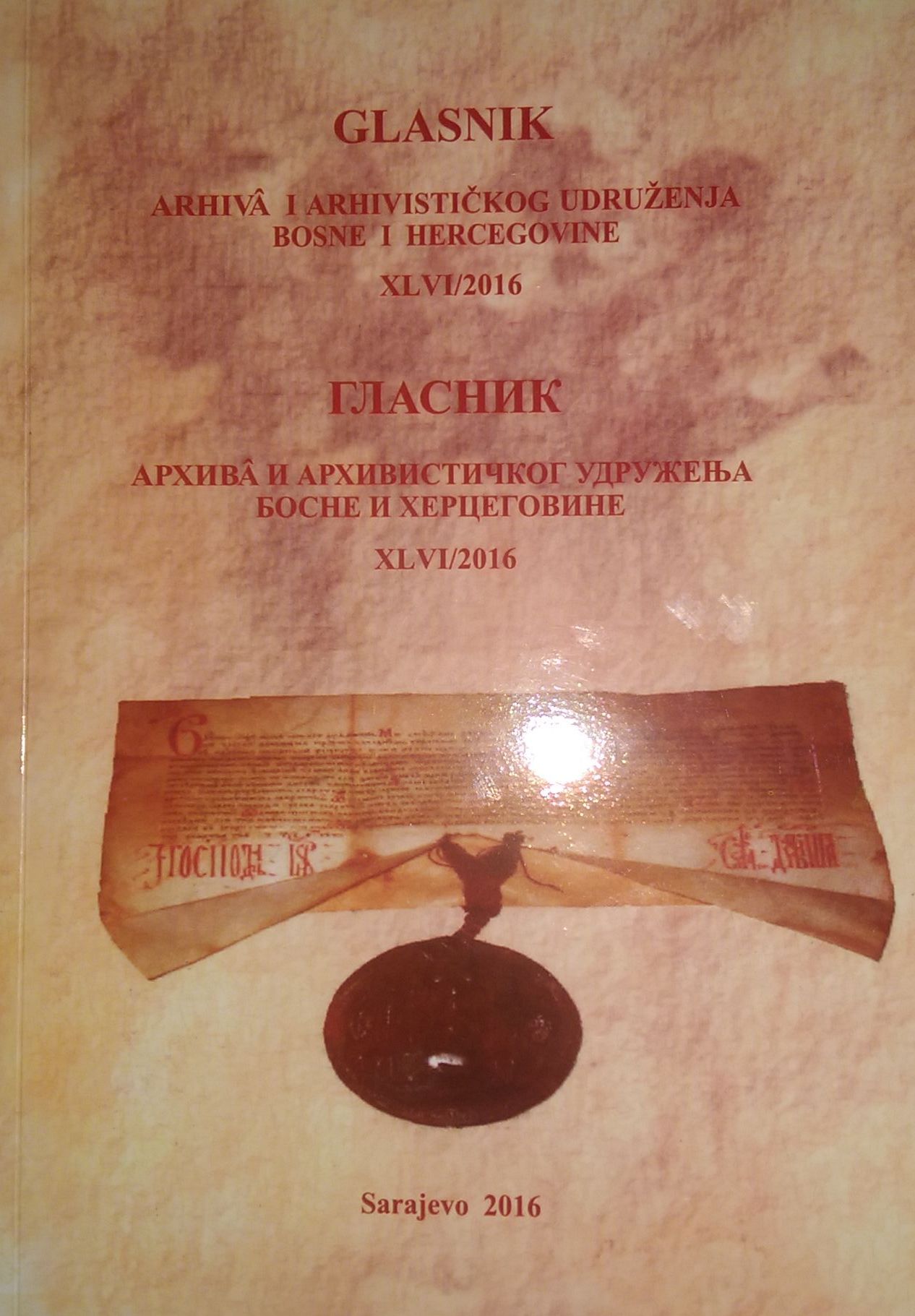OBNOVA I KONSOLIDACIJA PRIVREDNIH PREDUZEĆA TUZLANSKOG OKRUGA 1945-1952. GODINE
RECONSTRUCTION AND CONSOLIDATION OF COMMERCIAL ENTERPRISES IN TUZLA COUNTY 1945.-1952.
Author(s): Sead SelimovićSubject(s): Economic history, Local History / Microhistory, Social history, WW II and following years (1940 - 1949), Post-War period (1950 - 1989)
Published by: Arhivističko udruženje Bosne i Hercegovine AUBiH
Keywords: Bosnia and Herzegovina; Tuzla district; reconstruction; consolidation; economy; society; business corporations development;
Summary/Abstract: The most important business corporations after World War II, in the Tuzla district, the salt pans, mines, factories soda in Lukavac, mills, foundries, brick and agricultural enterprises. These companies are after the establishment and renewal began to consolidate and to significantly affect the overall development of Tuzla and its surroundings, but also of Bosnia and Herzegovina as a whole.The first post-war years in the salt is characterized by working enthusiasm, voluntary overtime, competitive elan. In addition to increasing production, salt works has expanded its production capacity and create skilled manpower. The mines Lancaster, Đurđevik, Moluhe, Krek, Ugljevik al., Primitive way of production time has been modernized and production was increased continuously.Reconstruction of the road, especially rail transport, allow it to be produced coal from northeastern Bosnia transported to other parts of Bosnia and Herzegovina, as well as outside its borders. Particularly significant was the construction of the railway Brcko - Banovici, which is produced in coal mines Banovići transported to Serbia.For Tuzla and its surroundings is a major character had wood industry, especially due to the fact that this region is rich in forest resources. Harvesting is carried out in the river basins Oskova, Gostilja etc., And at sites Kladanj and Lopare, while cutting performed on the mills' Konjuh "Zivinice," unloading "," Mačkovac "at Lopara and others. In addition to cutting, in the said forest companies was carried out by the semi and final wood processing, which was of great significance for the people of this region. Economic and social development of north-eastern Bosnia in the period of 1945-1952, was affected by, among other things, that the region becomes interesting and attractive to residents of the wider environment. The population settled, especially in Tuzla, from various parts of Bosnia and Herzegovina, but also from Serbia, Montenegro, Croatian and other South Slavic countries.
Journal: Glasnik arhiva i Arhivističkog udruženja Bosne i Hercegovine
- Issue Year: 2016
- Issue No: 46
- Page Range: 189-208
- Page Count: 20
- Language: Bosnian, Croatian, Serbian

